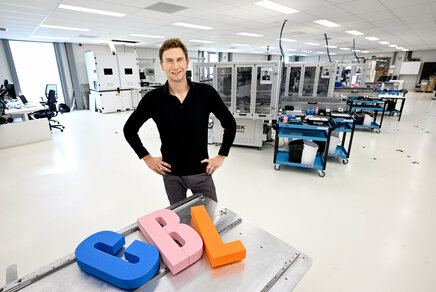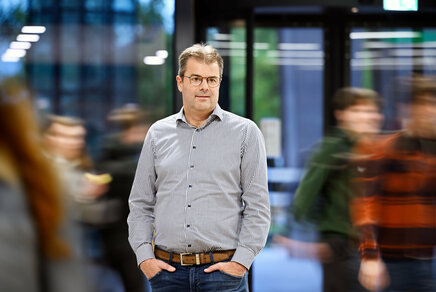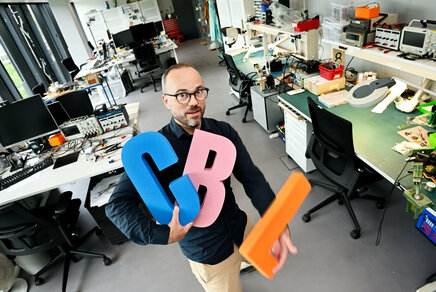‘There’s a greater need for confidential advisors than I expected’
Last year, the three confidential advisors for undesirable behavior and integrity provided about 75 TU/e students and employees with a sympathetic ear.
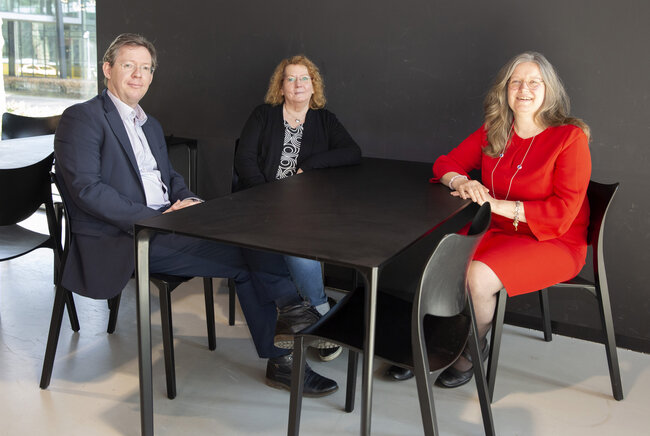
Our community is no stranger to facing challenges head-on and solving them; that is the way of the engineer. But what if you have a personal problem with a colleague or supervisor, doubt yourself, and cannot see a way out? That is where the TU/e’s three confidential advisors can lend a sympathetic ear to students and employees. “Sometimes, being able to tell your story is already part of the solution. Many people think it’s their fault. We can offer them relief by being able to say: 'No, you're no going crazy, what happened to you isn't normal',” says confidential advisor Hjalmar Mulders.
Of course, people tell them distressing things in confidence, things they would rather not hear, and that upset them. But the three TU/e confidential advisors for undesirable behavior and integrity are realistic. “Unpleasant things happen here too, like everywhere else,” says Henny van Alphen. “I knew there were things going on.” Hjalmar Mulders has a different take: “There’s more happening than I expected.” “We’re less humane than I’d hoped,” adds Van Alphen. “And confidential advisors are needed more than I’d expected,” concludes Mulders. After 12 and a half years, their colleague Tineke van den Bosch is all too aware that it is an illusion to think that the TU/e does not need confidential advisors.
When confronted with undesirable behavior at our university - things like (sexual) harassment, aggression, violence, bullying, discrimination - you can share your concerns, fears, and doubts with Tineke van den Bosch, Hjalmar Mulders, and Henny van Alphen. Tineke, who works as a coach in Human Resources Management, is the most experienced of the group. In her role as a confidential advisor, she has been lending a sympathetic ear to TU/e students and employees for more than 12 years. “I enjoy helping people and think it’s important that our university offers this service.”
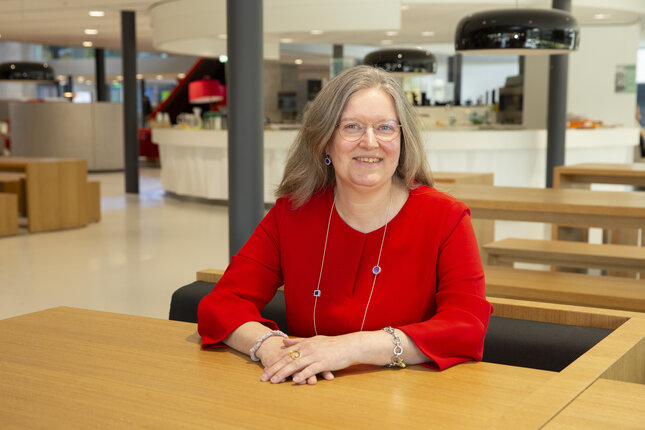
Motivation
Hjalmar Mulders is a professor in the Applied Physics Department and has been a confidential advisor for the last two and a half years. He is motivated by his desire to provide assistance to victims of undesirable behavior. “The biggest problem is that they feel alone, isolated. They need someone to talk to; that’s what I want to be.”
Henny van Alphen, an Information Management and Services senior project leader became a confidential advisor last September. “It’s invaluable to me that I can take care of people and that they can tell me their story in complete freedom and safety. It can be quite difficult to listen without judgment.”
She says she is not fearful in her role as a confidential advisor. “We’re very vulnerable in our roles, especially when we’re in talks with, say, supervisors. After all, we’re raising issues within our own organization. Hjalmar has taught me not to fear confrontation and always try to remain friendly.”
We don’t solve the problem for you but try to help you come up with a solution.
Confidential advisor Henny van Alphen
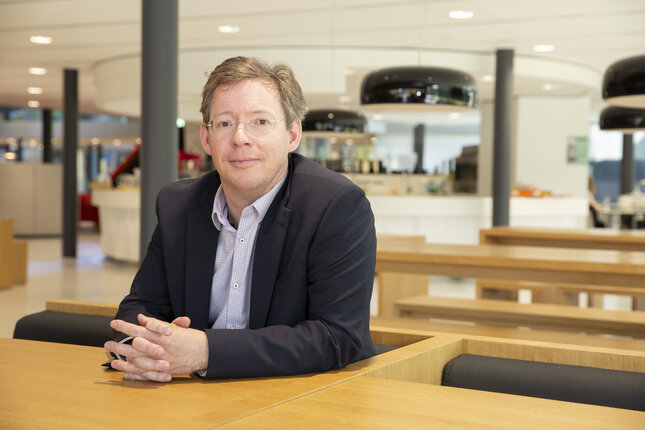
Mulders adds: “As a confidential advisor, you must especially be able to listen and brainstorm. But you mustn’t come up with solutions. I’m a technical person and a man and often have to bite my tongue during conversations to avoid immediately spouting solutions. ‘Why don't you do…’ and ‘Can't you just…’.” “It's not just you,” says Van den Bosch, “it happens to us too.”
“The people in our community are used to solving problems themselves. That’s an important part of being a scientist. And if that doesn’t work, they usually try a little harder,” is how Mulders characterizes the TU/e community to which he belongs too. “People don't easily ask for help here,” Van den Bosch admits. “But it makes things so much easier if you don't have to do it alone. If you feel you can no longer approach your manager or supervisor, you can knock on our door. That’s what we’re there for.” “And sometimes, merely being able to tell your story already solves the problem,” says Van Alphen.
Acknowledgment
Many people find it quite daunting to even set up a meeting with a confidential advisor. Mulders: “Saying that someone’s doing something unpleasant to you is acknowledging to yourself that something’s going on. If you don’t tell anyone, the problem doesn’t exist, not even for yourself.” Van den Bosch advises not to wait too long if something is bothering you. “The sooner you come, the better we can help you make sure the situation doesn't escalate,” she says.
“Many a discussion begins with ‘Am I crazy to feel this way?’ or ‘I don’t know if I should tell you this…’” says Mulders. “The most important feedback we can give people is to affirm their gut feeling hasn't forsaken them, that was had happened to them, isn't normal."
The people in our community are used to solving problems. And if that doesn’t work, they usually try a little harder.
Confidential advisor Hjalmar Mulders
Van Alphen starts all her conversations by saying that everything said is confidential and will remain so. “Sometimes participants think the confidential advisors will solve the issue for them, but we don't. We support them and try to help them find a way to address their problem.”
“Sometimes people come in saying they want to file a complaint with the complaints committee for undesirable behavior. That’s exactly what we try to prevent; we’d rather find a solution together. But, first and foremost, I listen. If they still want to file a complaint after the first interview, I ask the complainant to come up with alternate scenarios, which we discuss in a second interview.” As far as the confidential advisors know - they don't always get feedback on what someone has done after talking with one of them - few complaints are filed. Last year, it happened only once.
Raising the alarm
“Some people simply want us to be aware that something is going on in their group or department. So that if we hear something from that quarter again, we can raise the alarm,” says Van Alphen. But that’s where confidentiality comes in; the three don’t share with each other who they are consulting. “We’ll ask for permission to discuss a case with the other confidential advisors, and sometimes we discuss cases anonymously among ourselves. That helps us offer better advice.”
They also go to each other to blow off steam. “You sometimes hear terrible things, and you do take those thoughts home with you,” says van Alphen. “Problems can be so complex, with many people involved. And things can seem hopeless.”
They sometimes refer people too. “For example, I don't take on cases from IMS, my department, or ID cases because that’s where my wife works,” says Van Alphen. “Hjalmar can’t do anything that comes up at the Applied Physics department, and Tineke can’t do interviews with a Human Resources Management link. That’s why it’s vital to have confidential advisors from different parts of the university. Because of how diverse the university is, we’d also like to have a non-Dutch confidential advisor.”
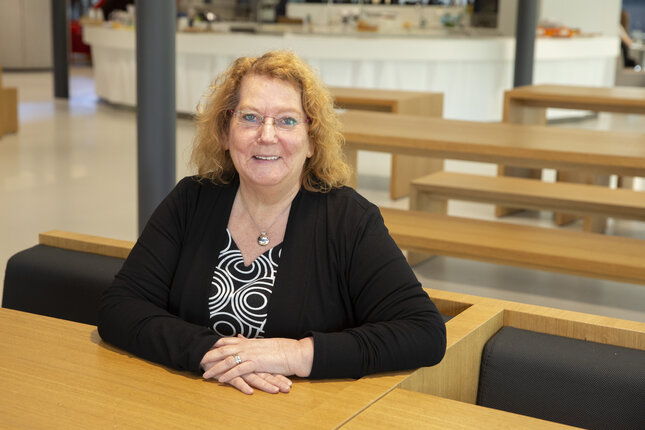
We’re not mediators; we always support the complainant.
Confidential advisor Tineke van den Bosch
Sometimes, it happens that the confidential advisors sit in on talks with a supervisor. “We first give people the tools to start the conversation themselves. People often get very stressed if they have to have a tense conversation. I then often tell them that they don’t have to do anything yet. Just go and listen. If they want us to, we join the talks. Our presence adds weight. And we always support the complainant; we’re not mediators,” says Van den Bosch. “Sometimes we clarify what the complainant is trying to say because their message is often laden with emotion that can come across as offensive. We can soften those emotions so that a discussion is less likely to derail. That often really helps,” says Mulders.
As tough as their roles are at times, it energizes them too. “It makes me happy when talking to me provides people with a new point of view, and they can then solve their problem,” says Mulders. Van den Bosch loves providing the tools people need to dare to start a conversation. Van Alphen: “People are so happy when they feel heard. They’re so stuck, sometimes. By discussing the issues, ways out can be found. That's what I get out of it.”
Numbers
When it comes to people, you do not want to merely be a number. However, we did ask the confidential advisors for those. How many TU/e students and employees approach them and why? In 2021, it was 58 employees and 18 students. “I can still remember having to add them up for our annual report and being shocked by the number,” says Mulders. Harassment, bullying, and problems with supervisors are the most common issues, says Van Alphen.
The latter is particularly common. Mulders has handled dozens of cases where students or PhD candidates have issues with their supervisor. “They have to, for instance, do things that aren’t in their best interest or don’t lead to graduation or a dissertation. If they bring this up, they’re intimidated and hear: ‘If you don’t do this, there’ll be consequences.’ That pattern comes by all too often,” says Mulders. “And then it gets tricky because we’re a university, not a company. Students and PhD candidates are hugely dependent on their supervisors. In a company, you can say, ‘I’m out of here, I’ll find another job’, but it doesn’t work like that in science. Research is often very specialized; you can’t just go anywhere. And everyone knows each other, so if you leave somewhere under a black cloud, it’s tough to get going somewhere else.” Van den Bosch adds: “And, it's often your first job, so you’re very vulnerable.”
The confidential advisors believe leadership skills should garner more attention. “Within a university, leaders are often appointed based on their research expertise, not their leadership skills. That’s odd because the best scientists don’t always make the best supervisors.” “Leadership often ‘comes with the territory,’” says van den Bosch. “And it’s often viewed as chores,” adds Van Alphen. They would like to see steps taken in this area at the university via a different hiring policy and good leadership coaching. Efforts are already underway in this regard within Recognition and Rewards.
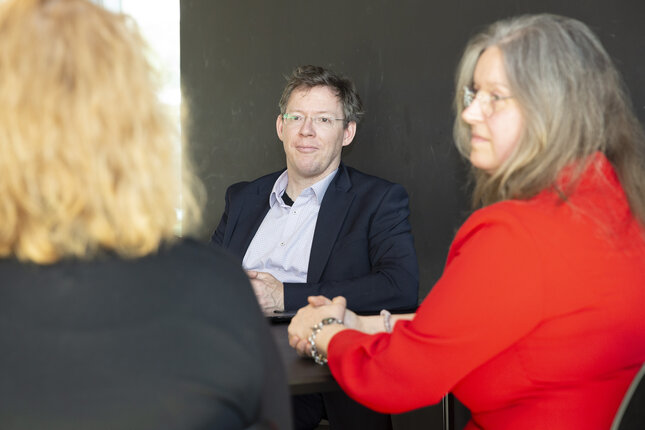
More than just talking
Van Alphen points out that having confidential conversations with TU/e employees and students is not all a confidential advisor does. “We play an advisory role too, for instance, when the student confidential contact persons were established. Or if, for example, the student sports center wants to introduce a new social safety protocol. And actually, we should also be doing prevention by, say, educating supervisors about how to prevent undesirable behavior. But we simply don’t have enough time for that in the few hours a week we fulfill the task of confidential advisors in addition to our regular work."
Talk to each other; don’t isolate yourself. We are here to listen to you.
Confidential advisor Hjalmar Mulders
What advice would the confidential advisors like to share with our community? “Listen to each other,” advises van Alphen. “Talk to each other,” adds Mulders, “and don’t isolate yourself. I see that in many victims. They make themselves small and no longer talk to their colleagues, nor do they tell their families what’s bothering them. I know that at our university, we find it difficult to talk to each other and give or receive feedback. Come to us. We’re here to listen to you.” Van den Bosch: “It’s nicer when you don’t have to do it alone; that goes for everything in life. But sharing things by talking to us is a huge relief.” And she knows that all too well, after 12 and a half years on the job.
Want to make an appointment?
Do you want to make an appointment with one of these confidential advisors? You can choose who you would like to see. Besides these three internal confidential advisors, you can also opt to see one of two external confidential advisors. Should you be hesitant to get into contact with one of these confidential advisors, you can always file an anonymous report via the SpeakUp system.
More on our strategy
